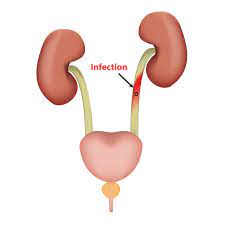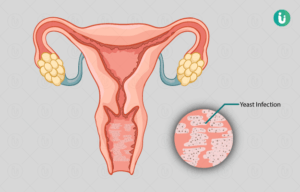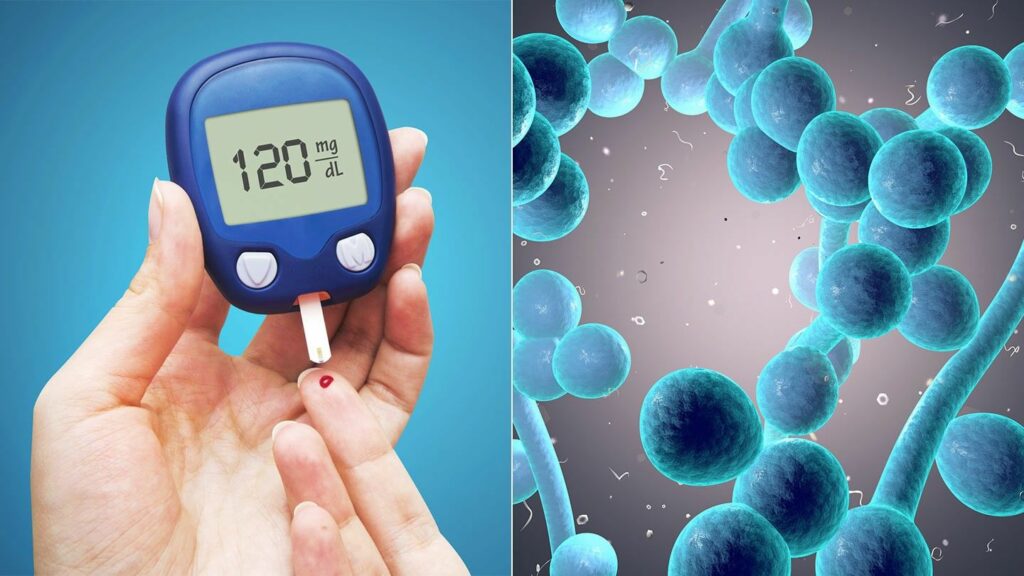Contents
- 1 Infections In Diabetes
- 2 Why Diabetics Are More At Risk Of Infections?
- 3 Symptoms Of Diabetic Infections
- 4 Possible Diabetic Infections
- 5 Complications Of Diabetic Infections
- 6 Preventions Of Diabetic Infections
- 7 Diagnosis Of Diabetic Infections
- 8 Treatment Of Diabetic Infections
- 9 A Word From MantraCare
Infections In Diabetes
People with diabetes are more susceptible to developing diabetic infections because the increased blood sugar levels can weaken the patient’s immune system and defense power. If diabetes has become severe or the patient has developed diabetes complications like nerve damage and blood pressure problems, then the risk of developing other infections in the body further increases.
Why Diabetics Are More At Risk Of Infections?
The increased blood sugar level in diabetes can weaken the immune system and defense power of the body. It makes our body susceptible to various infections and slow healing. Usually, when we get an infection, the white blood cells present in the blood come to the site of infection to kill the microorganism and heal the infected area. In diabetes, the blood supply becomes weak and often can not reach the area of infection. That causes the infection to grow, and diabetics find it hard to heal the wounds.
Symptoms Of Diabetic Infections
People with diabetes should pay constant attention to any changes in their bodies that could hint at an infection. The symptoms of infection in diabetics could be-
- Skin rash
- Pain
- Redness or swelling
- Wound or cut that won’t heal
- Throat problems like- sore throat, scratchy throat, or pain in the throat
- Vaginal itching
- Painful or frequent urination
- foul-smelling pee
If you notice any of these symptoms, consult a doctor as soon as possible.
Possible Diabetic Infections
If you have diabetes, you are especially prone to foot infections, yeast infections, urinary tract infections, and respiratory infections.
Foot Infections In Diabetes

People with diabetes are at risk of infection and wounds in the leg which is also known as diabetic foot. This happens due to low blood flow and nerve damage in the limbs. If these infections are not treated in the early stages, these can turn into ulcers and may need an amputation.
Sometimes, infections create a space of pus also known as ‘Abscess’. The treatment of an abscess is to drain it. The symptoms of foot infection in diabetes are experiencing a change in skin color or temperature, swelling in the feet, pain in legs, open wounds that do not heal easily, or even ingrown toenails.
Urinary Tract Infection In Diabetes

People with diabetes are more prone to UTIs caused by germs like Escherichia coli, Enterococcus, and yeast-like candida. Uncontrolled diabetes can cause infections that interfere with the fighting action of white blood cells.
These infections are highly risky for diabetic patients. The symptoms of these infections could be burning, itching, or discomfort in the urinary tract or in the area around it.
Respiratory Infections In Diabetes

Respiratory tract infections are more found in people with diabetes than in healthy people. Diabetes can contribute to the development of several respiratory infections like pneumonia, tuberculosis, and consequential inflammation which may cause breathing problems. People with diabetes are even more prone to common infections like cold and flu that will take relatively more time to recover. The symptoms of respiratory infections are facing difficulty in breathing, cough, facial swelling, fever, body aches, and inflammation in the respiratory tract.
Yeast Infection In Diabetes

Yeast infection affects women usually. Women usually have yeast organisms living on and inside their bodies as a part of their normal flora. These organisms do not cause any harm to the bodies. But when the number of these microorganisms overgrows, they may cause health problems. Women who have diabetes are more likely to suffer from vaginal yeast infections. This infection is also known as candidiasis.
The symptoms could be that it causes itching/irritation around the vagina and a thick white discharge from the vagina.
Complications Of Diabetic Infections
As mentioned earlier, people with diabetes have weak immune systems, and wounds are way too hard to heal. So the infection that was minor once, can affect the person severely. Studies have shown that even those who have minimal raised blood sugar levels experience worse outcomes with infections. However, infections in diabetics do not increase the mortality rate but wounds take a relatively long time to heal. People who experience poor wound healing, and effects on blood vessels due to high blood sugar may experience some even more complicated heart diseases.
These diseases could be heart disease, kidney disease, and eye problems like diabetic retinopathy. In case of untreated wounds, the infection may spread to muscles and bone. In such a case, amputation is required, which will affect the quality of life.
Preventions Of Diabetic Infections
The most important thing you can do to avoid such infections is to act carefully. You have to keep your blood sugar levels normal without saying. Take medications as prescribed by your doctor and maintain good personal hygiene.
Foot Care
For preventing infection in the feet, you should always wear footwear even at home, or at least wear socks. Avoid any minor bumps, keep the house clean so you don’t run into any stuff that can cause blisters, cuts, or sores. You have to examine your feet daily to disallow an infection to develop because these are the minor cuts that turn into ulcerated infections. Whenever you visit your doctor it’s important to have your feet checked at each visit.
Urinary Hygiene
Maintain urinary hygiene, especially for women so you can prevent or minimize the possibility of urinary tract infections. This includes keeping the toilet clean, regular emptying of the bladder, and nutritious fluid intake.
Yeast infections can be prevented by good vaginal care. You can eat active cultures such as yogurt containing Acidophilus and avoid spermicides for keeping the yeast infection away.
Diagnosis Of Diabetic Infections
Your health care provider may perform one or more tests to diagnose infection, including blood tests, microscopic examination of secretions, urine dipstick tests, X-rays, and physical examination. According to the symptoms and results of these tests, your doctor may perform other tests too.
Your doctor will diagnose your infection, and check your blood sugar levels. A1c glucose test is performed in the case of infections, to know your blood sugar levels for the last three months. and will ask you to keep monitoring it throughout the day to understand the cause of rising sugar levels.
Treatment Of Diabetic Infections
The doctor may prescribe oral or topical antibiotics to treat some diabetic infections. The most important measure is careful blood sugar control during any infection to promote healing and prevent further complications related to the infection. You should also stay physically active for keeping your blood sugar level stable. Eat fiber-rich, nutritious food to prevent these complications or for a fast recovery, if you already acquire any of these infections.
A Word From MantraCare
Do you want to get rid of diabetes? Join our online diabetes consultation program and reverse your Diabetes naturally through lifestyle changes such as a Personalized Diet plan, Exercise, dieticians, and health coaches.


